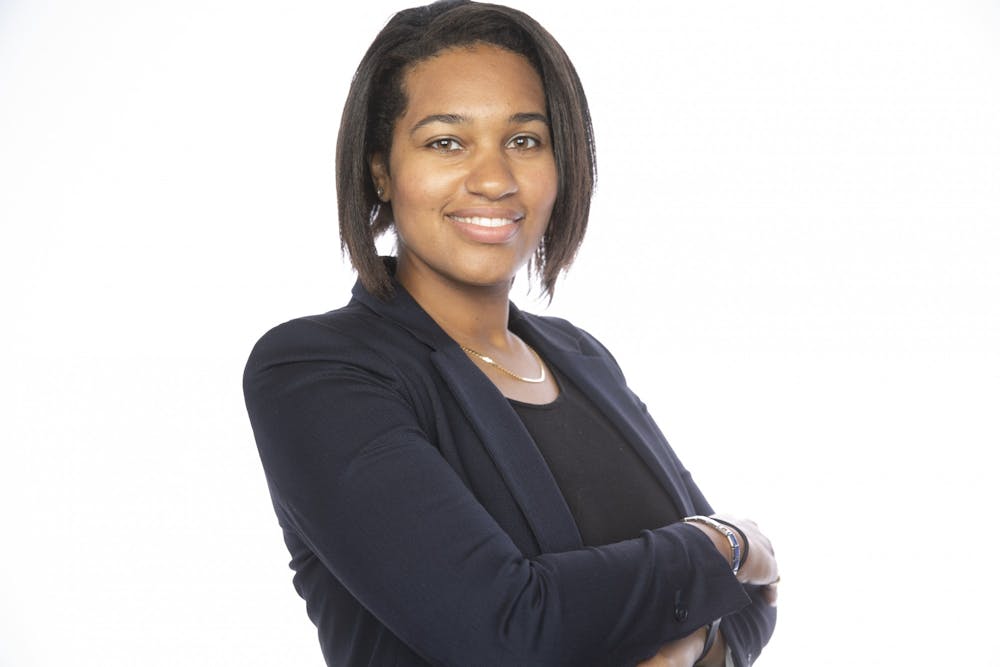The Luddy Shoemaker Innovation Center and Shoebox startup incubator went online in March due to the COVID-19 pandemic, which brought change, success and encouraged students to continue working amid unprecedented circumstances.
The Shoemaker Innovation Center is a workspace located in Luddy Hall that hosts classes, workshops and events with entrepreneurs, according to the Luddy School of Informatics, Computing and Engineering website. Within the center, the Shoebox startup incubator provides experiential learning and accommodates 30 client teams made up of students who are developing a startup company or business.
Before COVID-19, client teams had 24/7 access to the center, but are now forced to meet remotely through Zoom or Slack, an online communication platform. The center rotates every Friday between hosting client standups, where around 10 teams present their latest project developments, and the speaker series, where innovators, venture capitalists and legal professionals provide expertise to young entrepreneurs. The client teams also break out into innovation groups of four or five to further discuss and compare developments.
Travis Brown, executive director for the Shoemaker Innovation Center, said he was pleasantly surprised the center maintained as much stability as possible after switching entirely online. It achieved this by not canceling the speaker series and allowing students to attend virtual office hours, he said.
“I knew how disruptive all this was going to be and the last thing that I wanted to do was introduce a disruption, and I knew there was going to be ample opportunity for students to disengage,” he said. “My thinking on those when things like this happen is, to the best of your ability, keep things the same, so that there’s stability there.”
Brown said the COVID-19 pandemic provided a good example for how entrepreneurs have to adapt to changing circumstances. He said the client teams have adapted well and are looking forward to further developing products and soliciting additional funding from outside investors.
“That’s also part of entrepreneurship, really learning to be resourceful,” he said. “You’re always going to be dealing with a series of obstacles and how you revere the trials and tribulations is a reflection on your resolve.”
Britain Taylor is a second-year Ph.D. student in intelligent systems engineering, and a client within the Shoebox incubator. Her startup ShuffleMe is a predictive software that brings self-awareness to social media users by tracking their mood daily. She said the COVID-19 pandemic has allowed newfound innovation in previously undiscovered spaces.
“Life was so busy, and sometimes we endure something and you don’t have an opportunity to actually take it in,” she said. “I think COVID allows us to go through something, assess, think about it, feel that emotion and keep going.”
Taylor said since the pandemic, her startup has seen continued success in garnering attention from companies such as Mutual of Omaha and Capital Innovations and has been chosen for the National Science Foundation I-Corps program for startups.
“COVID was to really show us that we do have to make adjustments in life, and sometimes those changes aren’t bad,” she said. “Sometimes those changes can really influence something that was working good, but now it’s greater.”
Jack Gallo, one of two client managers in the Shoemaker Innovation Center, said although the pandemic has brought overall negative effects to society, it’s had some positive takeaways such as revealing the strengths of some organizations, institutions and innovations, especially in startups like Taylor’s.
“I think that social media has taken such a different role in people’s lives over the last six, seven, eight months,” he said. “That’s a good example of how maybe a business, this wasn’t their intention, but look at the change in circumstances and look at this opportunity as how to make their business more adaptable or more applicable to people’s lives.”




